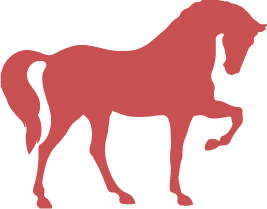4 TIPS TO OPTIMALLY PREPARE YOUR HORSE FOR COMPETITION AND HOT DAYS
Article Courtesy Cavalor The summer season is wonderful. Long evenings, plenty of competitions, and more time to enjoy horses and equestrian sport….
Free Delivery when you spend $49 or more. (Weight Limits Apply – view more)
 Dog
Dog

Shop Tuckers great range of dog food, health care & wellness products today. Delivered or Click & Collect.
 Cat
Cat

Tuckers has a great range of cat food, health care & litter products for your beloved cat. Shop now.
 Horse
Horse

Tuckers carry a huge range of food, supplements, health care, hoof care and grooming accessories. Shop now.
 Chook/Bird
Chook/Bird

Tuckers range of food, accessories & health care products will keep your chooks & birds happy and healthy.
 Small Animal
Small Animal

Shop food and health care products for your little mates @ Tuckers. Delivered or Click & Collect.
 Farm/Garden
Farm/Garden

Tuckers carry a wide range of sheep & cattle products, plus everything you’ll need around the farm or garden.
 Dog
Dog

Shop Tuckers great range of dog food, health care & wellness products today. Delivered or Click & Collect.
 Cat
Cat

Tuckers has a great range of cat food, health care & litter products for your beloved cat. Shop now.
 Horse
Horse

Tuckers carry a huge range of food, supplements, health care, hoof care and grooming accessories. Shop now.
 Chook/Bird
Chook/Bird

Tuckers range of food, accessories & health care products will keep your chooks & birds happy and healthy.
 Small Animal
Small Animal

Shop food and health care products for your little mates @ Tuckers. Delivered or Click & Collect.
 Farm/Garden
Farm/Garden

Tuckers carry a wide range of sheep & cattle products, plus everything you’ll need around the farm or garden.

Equine studies across the world agree horses easily managed stress due to changes in seasons by roaming freely to eat in according to their needs. They would actively seek plant varieties grown on different soil types, grass just one, look for salt or mineral deposits and select what they need. Now we have domesticated horses in small areas and recent extreme wet weather presents a new set of feeding challenges. The good news is if you look around there is plenty of information to help.
From mid-2002, over 3 breeding seasons, we were lucky enough to develop TuffRock in consultation with several Hunter Valley based TB Studs, veterinarians, mineral scientists and nutritionists. I recall meeting Woodlands Stud Manager, Mr Peter Flynn, before foaling started and he brought my attention to winter forage seasonally may have inadequate levels of minerals or how too many minerals can produce a variety of mild symptoms.
Studies of symptoms like Winter Laminitis by US based Dr Elanor Kellon VMD, including her awesome work with Cushing’s, also referenced a relationship between diet and susceptibility to thin hoof walls. Professor Chris Pollitt from QLD Uni School of Veterinary Science wrote about hoof vascular system damage to the laminae in horses (without obvious symptoms of laminitis) and published studies on bacteria in the (hind) gut. Studies like these highlight the need for feed balancing, adsorbing dietary toxins, modulating acetic / lactic acids pH and pure sources of minerals
Common symptoms of inadequate mineral levels, unbalanced feeds or fast changing feed patterns are undigested proteins. Although more prevalent during Spring forage they can happen with warm winters. These make toxins that can lead to winter laminitis or excess hindgut fermentation that can lead to low grade ulcers or stress colic. In turn the ability to maintain and repair tendons, ligaments and other connective tissues may also be impaired.
The most common answer to these symptoms is firstly to avoid radical changes to diet. Introduce techniques such as split feeds, start prep feeding in the paddock and pre-prepare for travel. Have you ever arrived in town and horses refuse to drink or eat? This is often due to the water having a different pH (taste) so what to do?
The best answer is to keep it simple, take some water from home when travelling, feed your horses products they need and increase energy inputs when more performance is required. Feed supplements that help animals go steady often delivers best results.
TuffRock GI is for keeping horses healthy and delivers steady normal Gastro-intestinal physiology to support their performance. Of course, it helps that TuffRock is made from purely volcanic chelated minerals in colloidal suspension with a natural earthy taste that horses love.
All products in the TuffRock range contain the 10 essential mineral concentrates horses need, made simple vegan friendly because horses are vegans. Specifically, the gut health action of TuffRock GI naturally supports healthy gut flora, modulates acetic / lactic acid, maintains optimal hindgut pH plus binds and reduces the negative effects of mycotoxins. Application can be daily with feed 10 ml for a pony or 20 ml for a horse or as easy as applying via syringe 10 ml onto a biscuit of hay, very handy for travelling.
The best way to find out more ways to help your horse is to ask. Most Australian manufacturers like us provide technical support or when visiting your local Produce Store or Saddlery there is always someone happy to help.
Please remember whenever you can, shop local, it helps keep people in jobs.
Article written by Steve Hurley, Founder of TuffRock.
Entire range - quick and secure delivery
Buy securely online and pickup at your local store
Call your local store and come on down to pickup
© 2026 Tuckers Pet & Produce.
